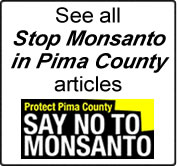Signs You May Need More Protein
Though some people eat too much protein, others, especially many women, eat too little. Be aware of the following signs, conditions, and stages of life that signal that you may need more protein than you’re currently eating.
You frequently crave sweet or starchy foods. Protein is a slow-burning fuel that steadies blood-sugar levels and helps keep energy levels steady, making you far less apt to crave quick-fix carbohydrates such as grain products and sweet foods and drinks.
You have cardiovascular or diabetes risk factors. High-protein diets have a stabilizing effect on blood sugar. This leads to beneficial changes in a wide range of metabolic, cardiovascular, and inflammatory markers, from insulin sensitivity to cholesterol and triglycerides to C-reactive protein.
You’re trying to lose weight. Protein slightly speeds up metabolism and makes people feel more satisfied, so they naturally eat less and lose weight. Dieters who double their protein intake lose more fat and maintain more muscle mass than dieters who eat the recommended daily amount, according to a 2013 study in The FASEB Journal.
You’re an athlete. The body uses protein to repair, build, or maintain muscle mass. People who exercise need more protein than their sedentary counterparts, and endurance athletes and strength-trained athletes need even more to optimize performance.
You’re elderly. Higher protein intake helps combat physical and mental deterioration associated with aging. In 2014, research from Japan found that men who consumed higher levels of meat and fish had a 39 percent lower risk of both physical and mental decline compared to those who ate the least animal protein.
You’re a woman who is pregnant or breast-feeding. Protein is crucial for a baby’s growth during pregnancy, especially during the second and third trimesters. It’s also an important component of breast milk, which optimizes infant growth and development. Women who are pregnant and who are breast-feeding require more than 50 percent more protein than women who are not pregnant or nursing.
Copyright 2016 Melissa Diane Smith
